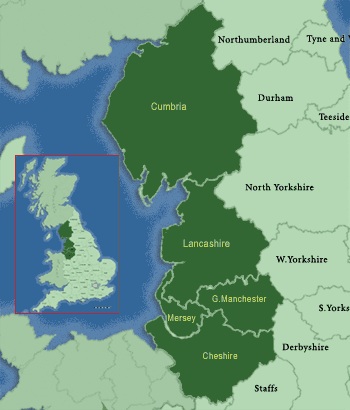Are LEPs breaking public information rules?
 Three out of the five Local Enterprise Partnerships in the North West are not routinely publishing board minutes or other official papers as expected under the Freedom of Information Act 2000.
Three out of the five Local Enterprise Partnerships in the North West are not routinely publishing board minutes or other official papers as expected under the Freedom of Information Act 2000.
More than a year after the first LEPs were announced by the Coalition Government as the replacement to Regional Development Agencies, the public and media are being given far less information about their decision-making than under RDAs.
FOI guidance says public authorities should proactively and routinely publish information such as board minutes, annual reports and accounts. The North West Development Agency, which ceased operating at the end of March 2012, routinely published minutes of its board meetings on its website.
Currently, only Cumbria and Greater Manchester LEPs publish their minutes online.
See the different publication policies of the LEPs and weblinks below
LEPs are a joint policy initiative of the Department for Business, Innovation & Skills and the Department for Communities & Local Government.
LEPs are involved in bidding for and distributing millions of pounds of taxpayers' money to projects with economic growth potential.
Programmes in which LEPs have influence include the £2.4bn Regional Growth Fund, Enterprise Zones with tax and planning relief, the £770m Growing Places Fund for infrastructure projects, and €755.5m European Regional Development Fund in the North West. LEP running costs are funded by a mixture of local and central government, with some having business members or in-kind support.
The DCLG website describes the purpose of LEPs: "Local Enterprise Partnerships are locally-owned partnerships between local authorities and businesses and play a central role in determining local economic priorities and undertaking activities to drive economic growth and the creation of local jobs. They are also a key vehicle in delivering Government objectives for economic growth and decentralisation, whilst also providing a means for local authorities to work together with business in order to quicken the economic recovery."
It is the view of Place North West that LEPs are public authorities covered by the Freedom of Information Act.
However, a spokesman for DCLG told Place this week: "Local Enterprise Partnerships are developed at the local level and each Partnership will decide locally how best to communicate their decision making."
After a follow-up request for clarification to the FOI service at DCLG, Place was told to contact the Ministry of Justice, responsible for legislation. No response has yet arrived from the Ministry of Justice.
The issue of public accountability for public funds is hardly a new one. The last Labour government set up a network of Urban Regeneration Companies, typically funded publicly by English Partnerships, local authorities and the RDAs. URCs would frequently refuse to publish information requested under the Freedom of Information Act. Instead, they would claim they were private companies limited by guarantee and not public authorities, despite not making or selling anything, being publicly funded and employing staff on council wages and pensions.
Secrecy obviously raises concerns about democratic process and transparent government around public expenditure and economic policy. But the publication policies of LEPs will also impact on their media and public relations. Manchester's envied success in delivering development and raising investment is underpinned by a relatively open publishing policy. Manchester's plans are shared at an early stage, digested and understood by a wide audience. By contrast, the 'no comment' approach of others leaves onlookers to make their own minds up about the decision-making process, allowing for resentment to grow over 'silent' projects and for conspiracy theories to thrive.
Applicants for information are due a response under FOI within 20 days. If they are not happy with the response a complaint can be made to the government department that funds the public authority in question. If they are still unhappy, a request can be made for an internal review at the relevant department. If they are still not happy they can complain to the Information Commissioner's Office, the official watchdog for public information, who will judge on the case and has the power to enforce disclosure. The ICO said it has not received any complaints about LEPs but this was normal at this stage for a new organisational structure.
The five North West LEPs have differing publishing policies
Cumbria: Proactively and routinely publishes board minutes
Website: http://www.cumbrialep.co.uk/current-activities/board-minutes/
Lancashire: A spokesperson for Lancashire Enterprise Partnership said: "We're keen to make information about our work available and will soon begin publishing board meeting agendas, reports and minutes on our website as a matter of routine."
Website: http://www.lancashirelep.co.uk/
Greater Manchester: Routinely and proactively publishes board minutes, along with discussion papers presented to the board and advice on policy.
Website: http://www.agma.gov.uk/calendar/index.html
The AGMA online calendar also carries minutes and papers for Association of Greater Manchester Authorities, Greater Manchester Combined Authority and various of their committees from public health to transport.
Cheshire & Warrington: Board initially decided not to publish minutes but will review the decision. Board papers available on request from Aidan Manley, operations manager, at 01606 734 191, aidan.manley@candwlep.co.uk, website: http://www.candwlep.co.uk/
Minutes to date requested by Place have been uploaded to Google Documents for public viewing, weblinks below
Liverpool City Region: A spokesman for the LEP said: "As Liverpool City Region LEP is just a month into its life, this is an issue that's still to be resolved. It is being tabled at the next Board Meeting on 18 May and we'll let you know the result."
The Liverpool City Region LEP met for a year as a shadow board, recognised by government.
Website: http://www.liverpoollep.org/




It’s not just the minutes but perhaps more importantly the agendas of what will be discussed in future meetings this is what local authorities publish and LEPs should also. Manchester again is good at this.
By Bosh